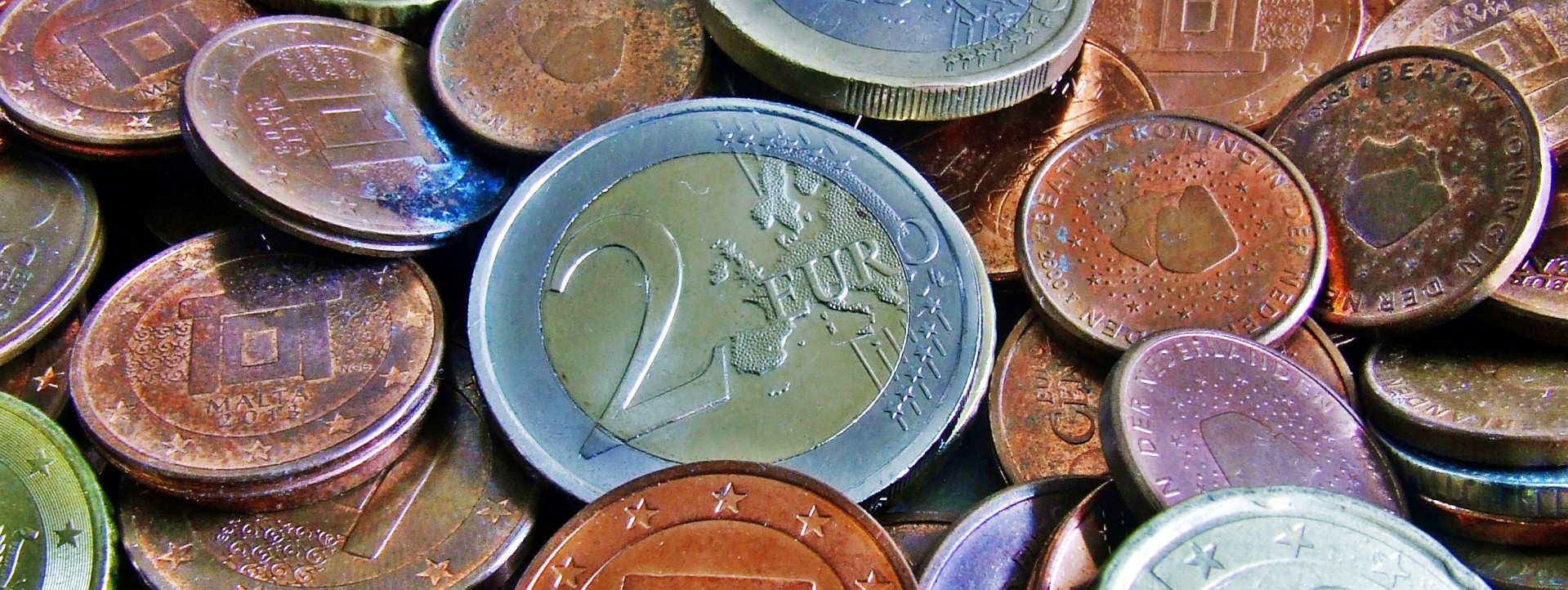People spend a lot of time trying to make money and thinking about how to make more of it. Yet most people don’t stop to think about what money really is. So what is it then? Do you have a definition?
Try to imagine how you’d get by without money. If it were me, I could choose to make everything I need myself, but sooner or later I’m probably going to want to swap what I have for what someone else has.
So, let’s say I have a bag of potatoes and you have a bag of apples. I realize that I have more potatoes than I need — and you realize that you have more apples than you need. I decide that I value your apples more than my potatoes and you decide that you value my potatoes more than your own apples — and we go ahead and swap.
Barter vs Money
That’s called barter. Barter is impractical partly because it requires so-called “coexistence of needs”. That is, that two people need to be at the same place at the same time while both happen to need exactly what the other has to offer and vice versa. And that’s where money comes in — as an agent to swap things more efficiently.
In the previous scenario, I might say “You may want my potatoes, but I don’t want apples, I want tomatoes instead. How about you give me 10 bucks for my potatoes.”. Then I can buy tomatoes for 10 bucks from another person, who goes on and buys carrots from someone else — who actually happens to need your apples and buys them from you. That way, you might end up getting the 10 bucks back that you gave to me. Still, it’s a small scale example and very a simple one too.
Yet it underlines the purpose of money — a medium to make exchange goods and services more efficiently than with barter.
However, this doesn’t change the underlying principle of barter — which is, “I value what you have more than what I have, and you value what I have more than what you have, so we swap”. In other words, it’s about exchange of value. Which leads to the definition, that:
Money is a system for communicating about value.
I would even say that money is a “language” for communicating about value. And value is subjective, please keep that in mind!
How is Money created?
One type of money has practically always been around: Gold.
What else could be used for money? The one attribute about money that is most important is, that its total amount must be limited. If it’s not limited it won’t keep its value, because people can just create more of it at will.
Gold, other precious metals and diamonds have the advantage that the supply is limited, they require hard work to create or mine and they have intrinsic value.
However, modern money doesn’t actually live up to those requirements. Currencies such as dollars, euros, pounds etc are not in limited supply and they are not created through hard work — the term for that type of money is “fiat currency”. It is created at will by the banks as debt. Either by lending out money from the central bank to other banks, through government over-spending or through regular banks lending out more than they have to their clients.
History of Money
As I mentioned before, gold has practically been around forever as money along with precious metals, diamonds, gems etc. At some point people started using paper money and coins with only a nominal value representing a real physical asset somewhere — i.e. cash is a token without intrinsic value. Any bank could issue notes representing i.e. a 10 grams of gold or similar while keeping the real gold in the bank’s vault. The notes were easier to carry around and transfer than real gold. This didn’t happen quickly — it took hundreds or event thousands of years for that type of money to be widely adapted around the world.
A new transition took place in the 20th century from bank notes that represented real value to fiat currency as mentioned above and to digital money. As a result, the numbers in your bank account or on your dollar bill don’t represent any physical asset, it represents this abstract concept of fiat currency. It can be created at will — yet not everybody is allowed to create it. If I would create more euro bills or add more numbers to a bank account, I would face prosecution for counterfeiting. Only the people that have it as their profession are allowed to create more money which is a privilege they have been granted by government.
The Rai Stones
I’m fascinated by the story of the Rai stones and I think there’s a lot to learn from that story. It’s a peculiar form of money that was found on a pacific island called Yap. There was no natural occurrence of limestone, so they used very large limestone rocks as money — as large as up to 6 metric tons. They were quarried far away and transported over the sea in small vessels with hard work and the risk of capsizing. Most rocks were too large to move, so instead people orally agreed that a specific stone had changed ownership. Later, when large ships were introduced it was suddenly much easier and cheaper to transport the large stones over sea and they lost their significance. I find this story fascinating because of these aspects:
- Supply of money is limited.
- Hard work and skill is required to create new Rai stones.
- Anyone can contribute to create new stones if they are committed to put in the hard work and acquire the skill — it is not a privilege that only few people have.
- A public and transparent record is kept in collective memory of who owns what and of the history of transactions.
Once the supply was no longer limited, the money lost its value. I think it’s important to keep these aspects in mind — and I will get back to it later. Actually, the aspects above also apply to precious metals and gems.
Digital Fiat
Most fiat money in circulation today is digital. A huge advantage about digital money is that they are easier to transfer than cash, precious metals, gems etc. A drawback with regards to money is, that digital objects are easy to copy at very low cost. That leads to the so-called “double spending problem” — which means that the same dollar / euro / pound can be copied and spent multiple times by the same person.
Say, Tom and I have each have 10 bucks, I transfer 1 to Tom for a cop of coffee. The system must now know that I have 9 and Toms has 11 bucks — and prevent that I spend that same buck again on something else.
To avoid that, all transactions require validation by a central clearing house. That clearing house (typically the central bank) keeps track of all transactions and of who owns which unit. In turn, that requires massive security — it adds overheard, costs, complexity and makes the system vulnerable to attacks. Additionally, it puts a lot of power in the hands of the few people that control the clearing house — they have the power to perform double spending and create more money. When they do so, they call it “quantitative easing”.
Bitcoin & Crypto-Currencies
Bitcoin, the first crypto-currency that was started in 2009, provided the first successful solution to the “double spending problem” with the so-called “blockchain” technology. It has no central clearing house, instead:
- The supply of bitcoin is limited and grows at a predictable rate.
- It requires hard work and skill to mine new bitcoins.
- Anyone can contribute to mining new coins if they are committed to put in the hard work and acquire the skill.
- A public and transparent record is kept — not controlled by a few people — but collectively on millions of computers using a sophisticated consensus algorithm.
Do you see the resemblance to gold, Rai stones etc?
How blockchain and bitcoin works in detail is beyond the scope of this article — stay tuned for another post about that topic!
Thanks for reading this far!
I hope you enjoyed my thoughts about what money is.
Have a great day and let me know what you think?


